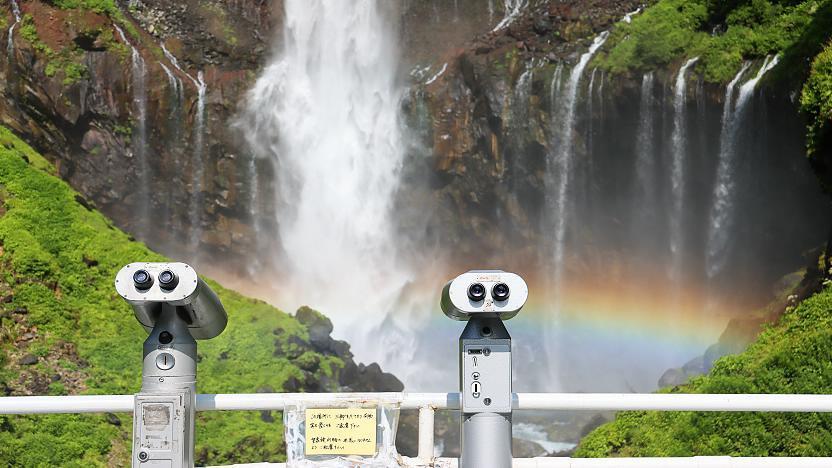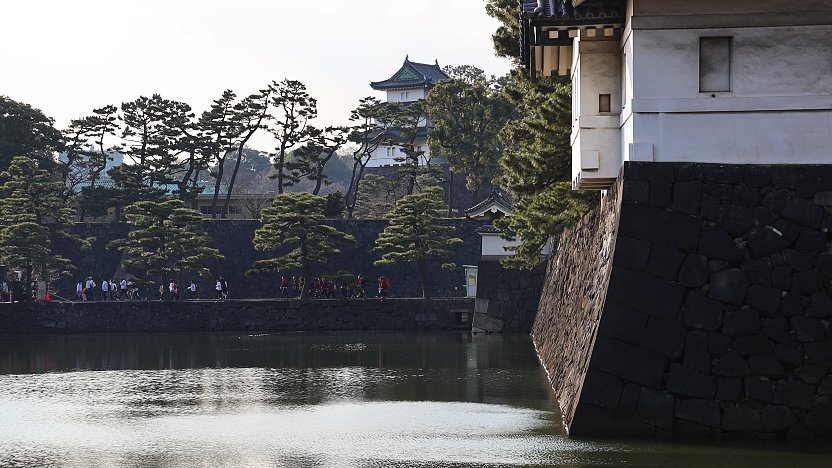Budget Travel - Sightseeing

While Japan has plenty of enjoyable sightseeing attractions that are free, most museums, temples, castles and gardens charge an admission of at least a few hundred yen. Yet there are a variety of discounts that can decrease your sightseeing expenses a little bit.
Free sightseeing
Below is a list of popular sightseeing spots and activities that do not cost admission:
- Tokyo
Toyosu Market, Meiji Shrine, Imperial Palace and East Gardens, Sensoji Temple, observation deck of the Tokyo Government Office and people watching and window shopping in bustling Shinjuku, Shibuya, Harajuku, Akihabara and Ginza. - Kyoto
Fushimi Inari Shrine, some Imperial palaces and villas (Kyoto Imperial Palace, Sento Palace, Shugakuin Villa), walking the Philosopher's Path and exploring the historic districts around Gion and Kiyomizudera. - Nara
Yoshikien, Heijo Palace and strolling through Nara Park and Naramachi. - Yokohama
Exploring Minato Mirai and Chinatown and the pleasant waterfront promenade in between with Osanbashi Pier and Yamashita Park. - Hiroshima
Hiroshima Peace Park, Mazda Museum and climbing Misen and visiting Daishoin Temple on nearby Miyajima. - Kamakura
Tsurugaoka Hachimangu, walking the hiking trails and washing money at Zeniarai Benten. - Nagoya
Atsuta Shrine and Osu Kannon Temple. - Hakone
Hakone Shrine, Owakudani and Gora Park (for Hakone Free Pass holders only).
Discounted sightseeing
Below are a few passes and discounts to look out for:
- Discounts for foreigners
Many local transportation passes, such as the Osaka Amazing Pass, the Nikko Pass and the Hakone Free Pass, give their holders discounts at selected tourist attractions. - Child and senior discounts
Many attractions offer child and senior discounts. Child rates typically apply to those younger than 12 years, although some places also offer discounts to high school and university students. Students may need to present a school ID or international student card to qualify for the discount. Senior discounts typically apply to those 65 years or older. - Coupons
Some tourist attractions, such as museums, theme parks and public baths, distribute coupons at local tourist information centers and hotels to be picked up and used freely by tourists. Some of these coupons can also be found as printable online versions, posted on their websites (and usually linked from the corresponding page of our sightseeing guide). - Combination tickets
Some places offer combination tickets that combine admission to two or more attractions in one area at a discounted cost. Check our sightseeing guide for local details. - Grutto Pass
The Grutto Pass provides free or discounted admission to dozens of museums in the Tokyo area during a 2-month period. A similar pass exists also for Osaka and Kyoto.

Shopping
The easiest way to save money on shopping is to not go shopping at all, or at the very least to limit yourself to window shopping. But realistically most travelers will want to do some shopping if only to buy souvenirs for their friends and relatives or themselves.
Many people also come to Japan with the hopes of scoring good deals on items that may be more expensive in their home countries. If this describes you, make sure to familiarize yourself with the prices of items at home before you get to Japan to confirm that prices in Japan are really lower. The following are some other shopping tips:
- 100 yen shops
100 yen shops are a found all over Japan and sell a wide range of products for 100 yen per item (plus consumption tax) including candy, stationery, household goods and tools. And they are popular with travelers since they usually carry a good selection of Japanese souvenirs, such as chopsticks, bowls and sake sets that are of surprisingly good quality and considerably cheaper than at regular souvenir shops. - Sales
There are two major sale seasons per year in Japan, one beginning in December and another around June. A popular item during these sales are lucky bags (fukubukuro), which cost anywhere from 5,000 to 30,000 yen or more. While the contents are a mystery, the value of the items inside is supposed to be worth more than the price tag. Lucky bags sold after New Year are especially coveted, with people lining up early to get them from popular stores. In addition, smaller sales are held throughout the year, especially towards the end of seasons to clear out inventory and make room for the next season. The actual dates and lengths of the sales vary by store. A few stores also have daily or weekly deals that are advertised on flyers available at the store entrance. - Tax-free shopping
Visitors to Japan can have the consumption tax waived when spending more than 5000 yen in one day at a licensed tax-free store, which are typically department stores and chain electronics stores in larger cities. A passport is required when shopping tax free. Be aware of eventual import limits of your home country in order to avoid being charged duty fees by customs upon returning home. - Point cards
Some stores, large chain electronic stores in particular, have point cards which allow customers to earn a percentage of their purchase (typically between 3 and 15 percent depending on the item) in points. The points can then be used on future purchases, with one point usually corresponding to one yen. Point cards can be obtained at the register at the time of your initial purchase. While point cards do not provide a discount on the initial purchase, they are a great way to get accessory items when making a larger purchase, for example getting a memory card or extra battery after purchasing a digital camera.
Questions? Ask in our forum.


